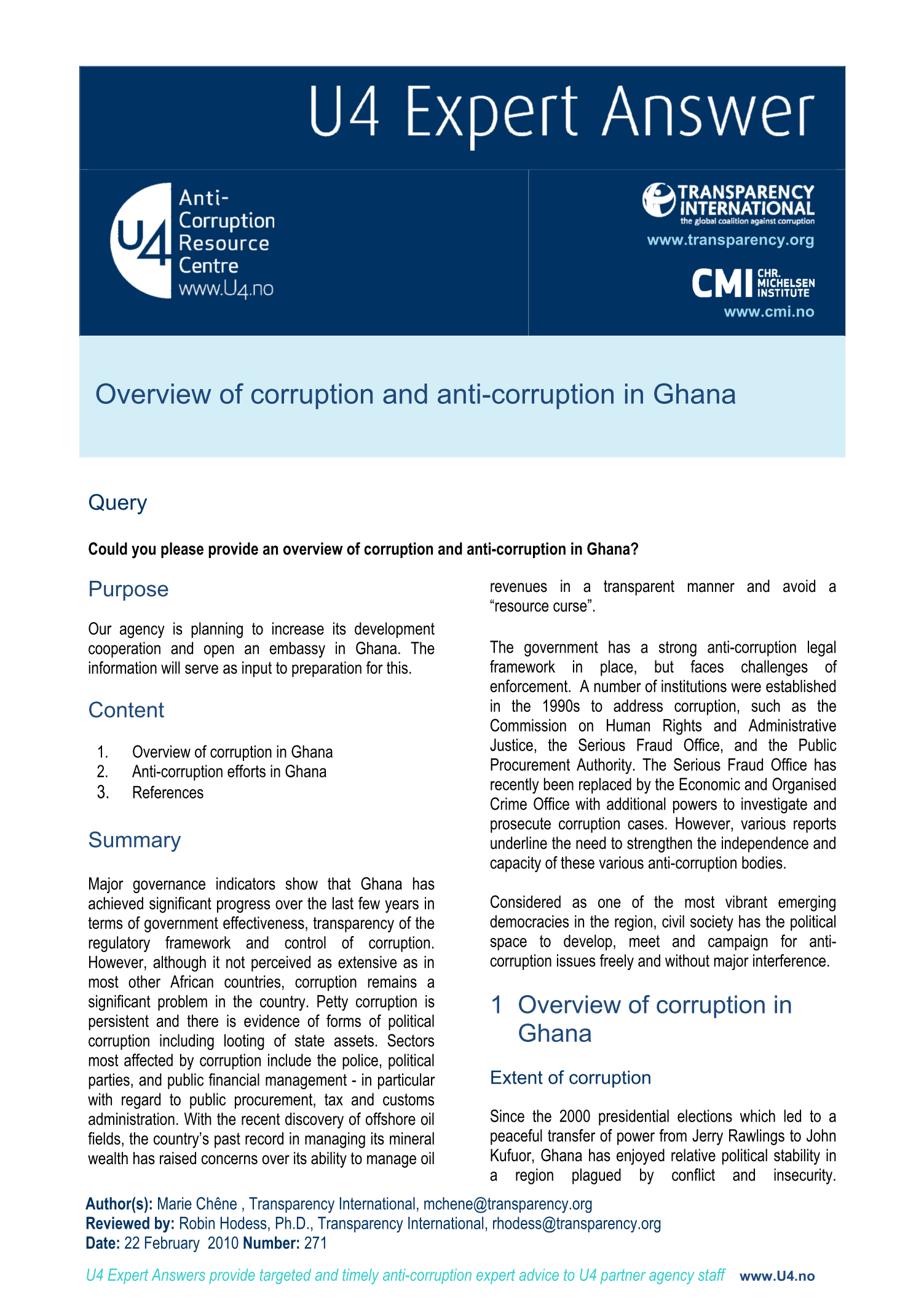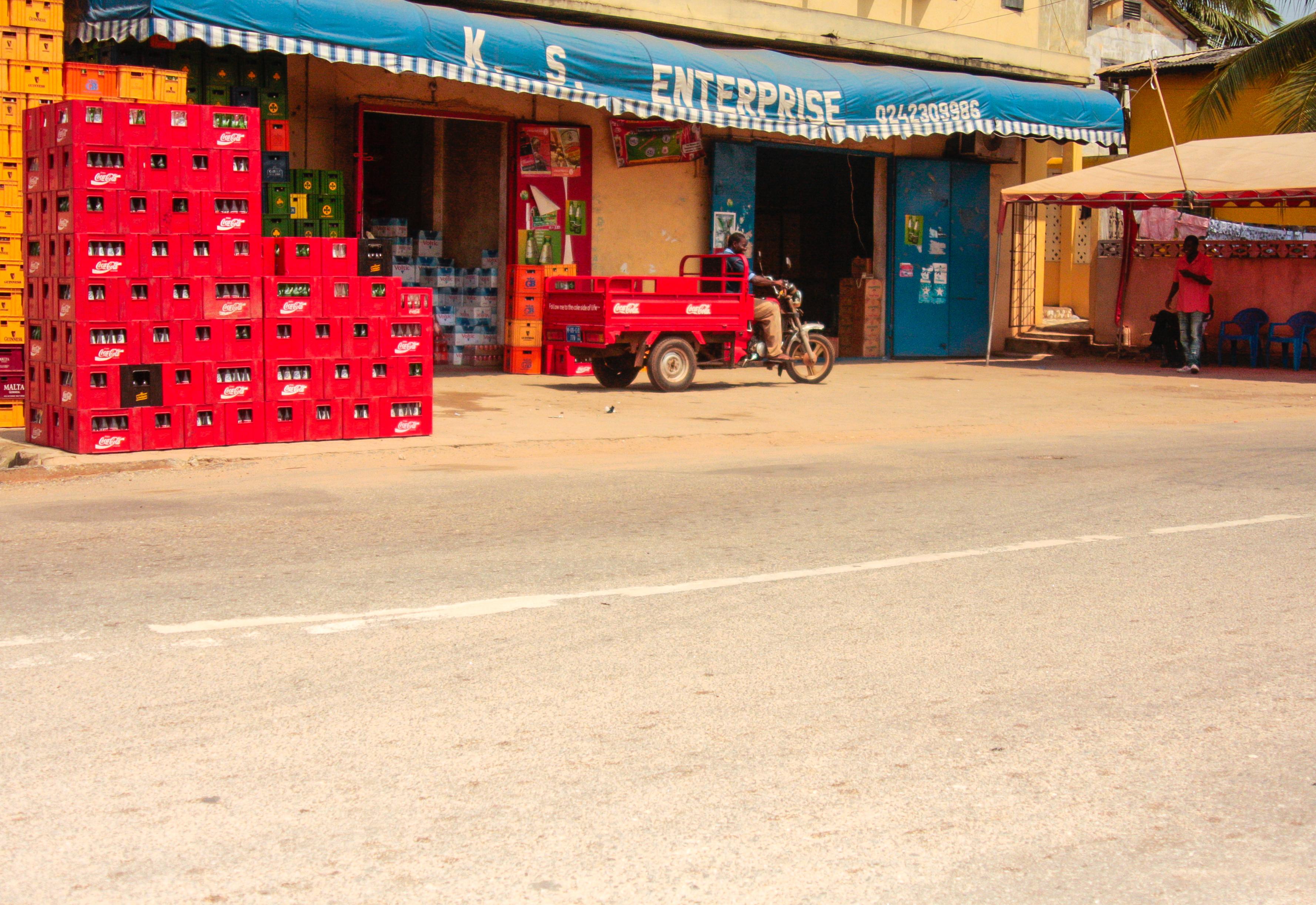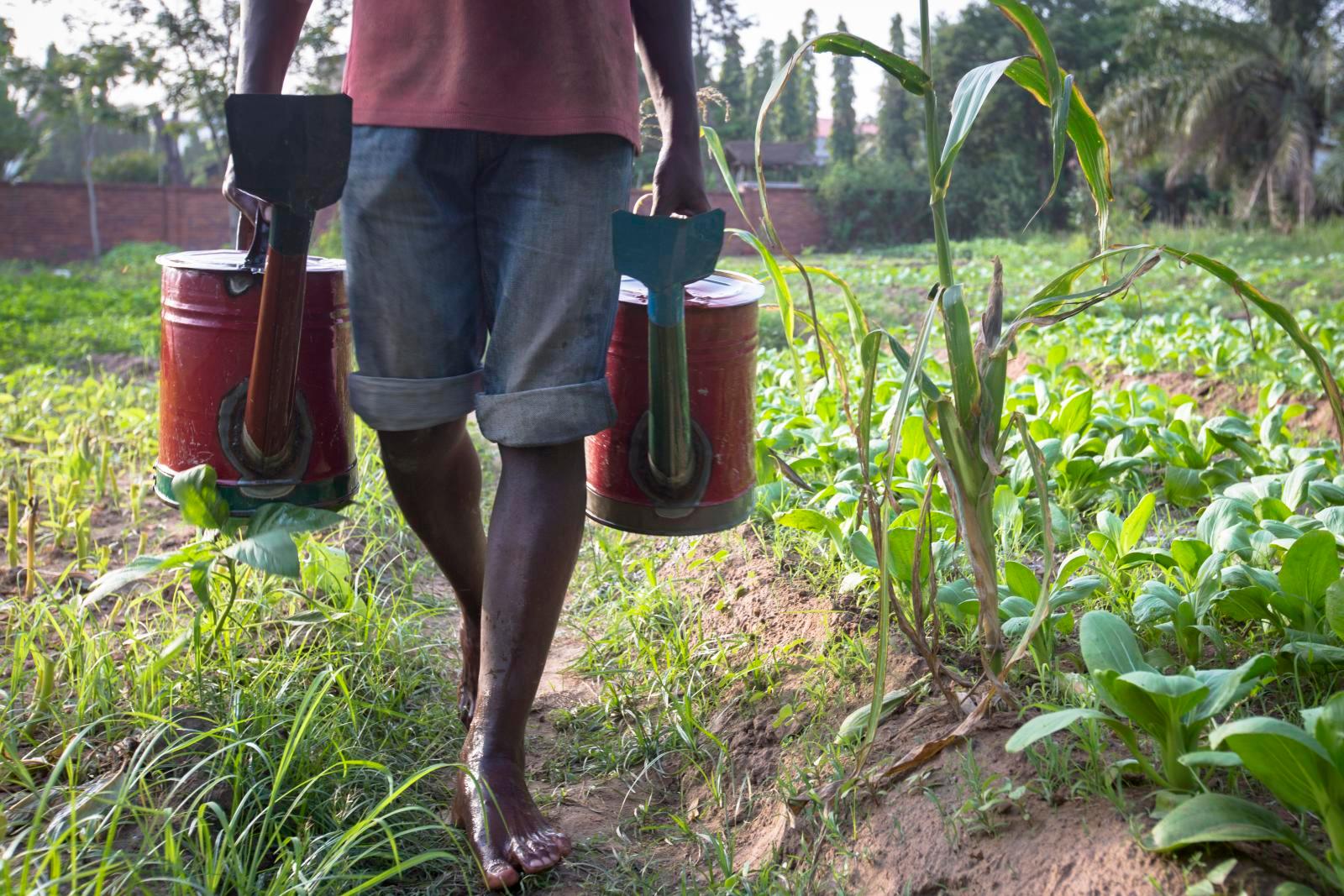U4 Helpdesk Answer
Overview of corruption and anti-corruption in Ghana
Major governance indicators show that Ghana has achieved significant progress over the last few years in terms of government effectiveness, transparency of the regulatory framework and control of corruption. However, although it not perceived as extensive as in most other African countries, corruption remains a significant problem in the country. Petty corruption is persistent and there is evidence of forms of political corruption including looting of state assets. Sectors most affected by corruption include the police, political parties, and public financial management - in particular with regard to public procurement, tax and customs administration. With the recent discovery of offshore oil fields, the country’s past record in managing its mineral wealth has raised concerns over its ability to manage oil revenues in a transparent manner and avoid a “resource curse”. The government has a strong anti-corruption legal framework in place, but faces challenges of enforcement.

Cite this publication
Chêne, M. (2011) Overview of corruption and anti-corruption in Ghana. Bergen: U4 Anti-Corruption Resource Centre, Chr. Michelsen Institute (U4 Helpdesk Answer null)
Disclaimer
All views in this text are the author(s)’, and may differ from the U4 partner agencies’ policies.
This work is licenced under a Creative Commons Attribution-NonCommercial-NoDerivatives 4.0 International licence (CC BY-NC-ND 4.0)


